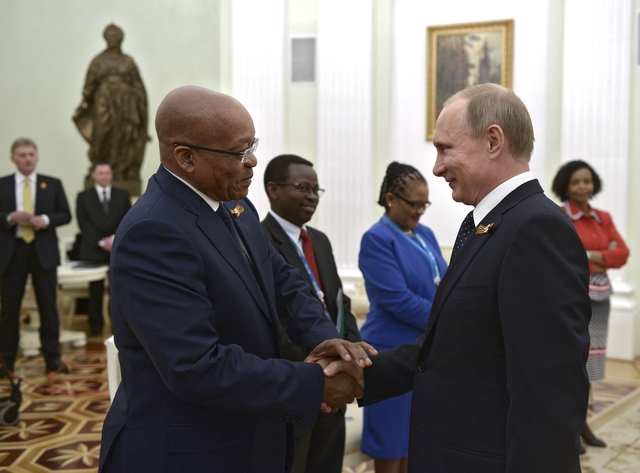
(Bloomberg View) — History clearly didn’t end with the triumph of market capitalism and democracy. Those who seek to disprove this old dogma often point to the eruption of radical Islam and the counteroffensive by the West — two events which have indeed overshadowed the last decade in many countries. But history has accelerated more dramatically — in the wrong direction — in three nations that contain a much larger part of the world’s population.
In Xi Jinping’s China, a proposed national security law aims at securing “ideological security” and “cultural security.” A skeptic would see the move as an effort by China’s unelected rulers to maintain their grip on power, a strategy which includes exploiting hardline nationalism. But the same urge to promote ideological and cultural conformity also motivates the elected rulers of India and Russia.
In all three countries, a crackdown on nongovernmental organizations — usually denounced as handmaidens of the West — and a greater intolerance of dissent have accompanied a fresh attempt at mass ideological indoctrination.
Vladimir Putin’s revisionism extends beyond an indulgent view of Josef Stalin and a defense of the 1939 Nazi-Soviet pact, to establishing a Russian sphere of influence in his neighborhood by force. India’s Narendra Modi is utilizing a variety of means — from promoting yoga to launching cross- border raids to punish militants — to deliver on his own promise of a strong, cohesive and proud Hindu superpower.
Their many supporters eagerly project an image of personal virility onto their leaders. Putin’s much-photographed bare torso now faces competition from Modi’s self-proclaimed 56-inch chest, which was invoked in the Twitter hashtag #56inRocks used by a junior minister to tout a military raid into Myanmar territory in pursuit of separatist militants.
In all three cases, the authority, prestige and mystique of the state is being refurbished through personality cults. For the state remains the oldest modern religion in the largest parts of the world — “the march of god in the world,” as Hegel called it.
Hegel’s mystical rhetoric about the superiority of the state over civil society may have sounded dangerously anti- democratic in the U.S. and U.K., where the rights of the individual and the security of property were upheld over the power of the state. But much of the world followed a very different path in the last two centuries. From Germany to Japan, Italy to India, a strong state was seen as the basic prerequisite to creating a sense of nationality, and indeed to making individual citizens: “We have made Italy,” Massimo d’Azeglio, a leader of Italian unification, famously remarked, “now we must make Italians.” The state was seen as more than a political or juridical entity: It was a moral organism whose membership alone could bring true freedom.
In the age of global capitalism, the charisma and authority of the state have greatly weakened. For more than two decades, ruling classes in China, Russia and India have had no choice but to participate in a global capitalist economy. The system remains hugely important to them — not least because it helps enrich them and their cronies and allies. But as Hegel warned, “membership of the state” should not turn into “something optional.” For wealthy, globally mobile upper classes in all three countries, citizenship and its responsibilities have become all-too-negotiable.
Now, as inequality rises and slowing economies intensify a general sense of misery and angry disillusion, those who hold the levers of state power can’t afford to be seen by citizens as part of a privileged, trans-national elite. Selective crackdowns on NGOs and corrupt individuals won’t help them repackage the compromised state as an impartial and just arbiter before disaffected citizens. The leaders of India, China and Russia now seem to be trying something dangerous: consolidating the national sovereignty diminished by border-crossing capital through cross-border militarism.
While committed to market capitalism, they realize that their highly unequal countries can no longer be held together by an ideology of individual self-interest. The authority of the state has to be seen as superior to that of an economic system that thrives through the interplay of private interests. Thus, they promote a nationalist ideology that seeks to exploit the timeless human willingness to sacrifice oneself for the family, religious and ethnic community and the state — with total disregard for personal profit or pleasure.
This is the same urge for self-transcendence, commonly termed “irrationality,” that Islamic State abuses. But its success seems minor compared to the steady advance of greater Russian, Chinese and Indian nationalism. It’s now becoming clearer that while the world was preoccupied with radical Islamists, nationalist ideologies backed by the state were achieving their strongest gains in three of the world’s most powerful countries.

